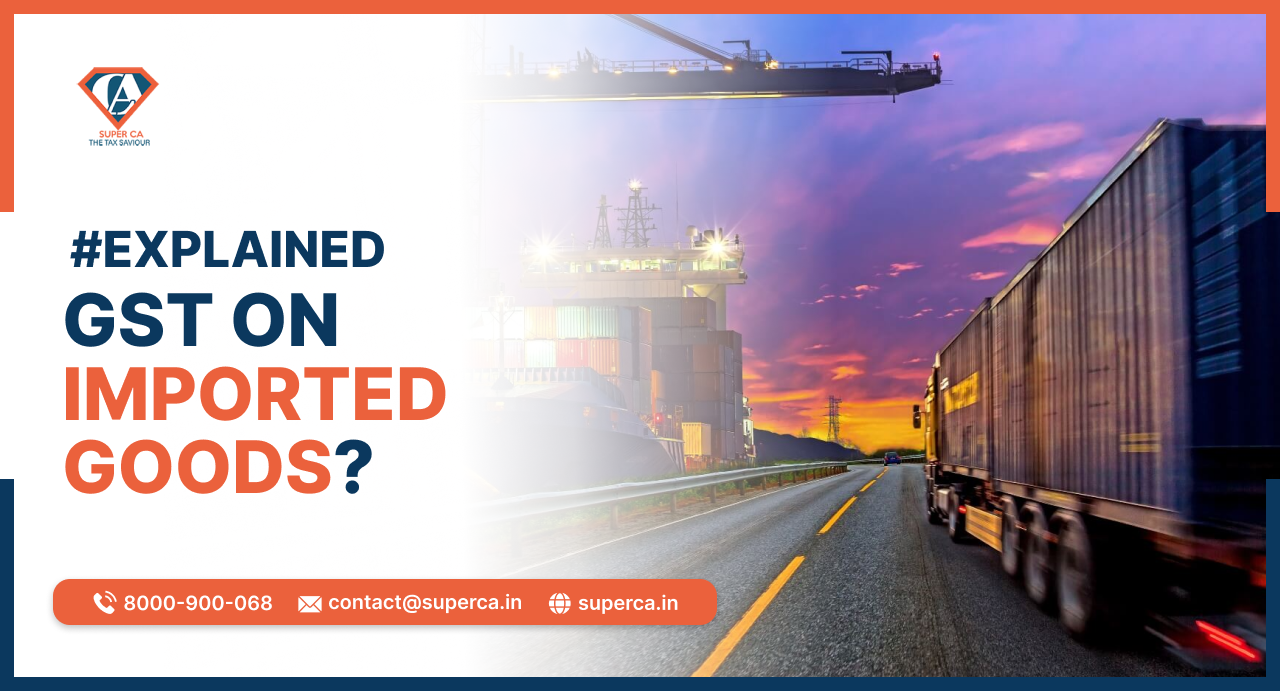GST on Imported Goods? Explained


As per the GST regime, when goods and services are imported into the periphery of our country, then their supply will be deemed as an inter state trade and IGST will be levied on the trade. This means that the trade of goods and services will be considered as an interstate trade and GST will be levied on it. In this blog, we will learn about GST applicability on the goods that are imported into India.
As per the guidelines of the GST Act, import of goods means bringing goods into our country from any foreign country. Therefore, all the imports into India are considered to be inter-state imports and hence IGST is levied on them. Along with IGST, customs duty will also be levied on the import. This means that at the time of importing the goods into India, IGST will be levied on the goods’ value and will be collected with the Customs Duty that is levied on the goods. After the amendment of the Customs Tariff Act, 1975, now the duty levied on the imported goods has been in the form of integrated tax and compensation cess for anticipating the rollout of GST.
GST has been applied to imports along with the Basic Customs Duty whereas the compensation cess is applied on specified luxurious goods and demerit goods which are determined according to the Goods and Services Tax (Compensation to States) Cess Act which was introduced in 2017.
In order to classify various types of goods under the regime of GST, a special code known as the HSN or the Harmonised System of Nomenclature Code has been used. This is used in order to ensure harmony between the classification of items for IGST computation purposes and the Customs Duty Purposes.
The amount of GST that needs to be paid on imported goods depends on the assessed value of the goods along with the Customs Duty that is levied on the goods under the Customs Act. The compensation cess is levied on the value of the product which is a sum of the assessed value of the item along with the basic customs duty that is imposed under the Customs Act. Therefore, the compensation cess must not include the IGST that has been paid at the time of computing the value.
The computation of the tax that is payable as the IGST should apply at:
Assessable Value= Rs. 100
Basic Customs Duty= Rs. 10
Value in order to levy GST= Rs.110
HST integrated Tax= 18% of Rs. 110 = Rs. 19.80
Total amount of tax= Rss. 29.80
In case of luxurious goods, if compensation cess has been applied, then the GST compensation cess will be imposed on Rs. 110/-.
As per the guidelines of the Customs Act, 1962, any goods can be removed from a customs station only and only when the payment of the Customs duty and the IGST has been done. Therefore, in order to remove his/her goods from the customs station, the importer should first make payment of the IGST.
The input tax credit is liable to be paid under the regime of GST in order to set off the stacking effect of indirect taxes. This also helps in ensuring that the consumers face the GST. The IGST is also applied on import of goods for the input tax credit. The importer will receive input tax credit for the integrated GST tax that he pays during importing of goods. Input tax credit is only applied for integrated GST tax and not for the Basic Customs Duty that the importer pays.
In this blog, we discussed in detail the GST that is levied on the goods that have been imported, the amount of GST that is levied, the computation of the amount of GST that will be levied on the imported goods and the payments of GST along with a brief introduction of input tax credit.

|
Essential LLP Registration Documents: A Complete Checklist for Entrepreneurs Author: Rahul Singh 04 Apr, 2024
|
Get inspired by these stories.